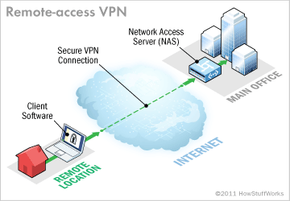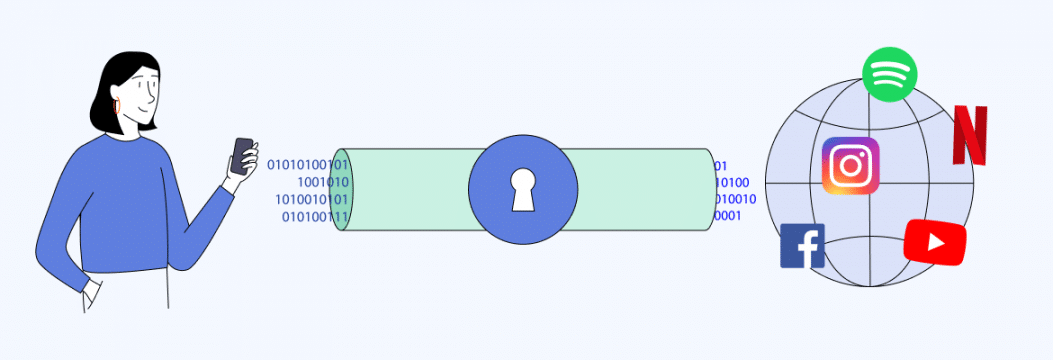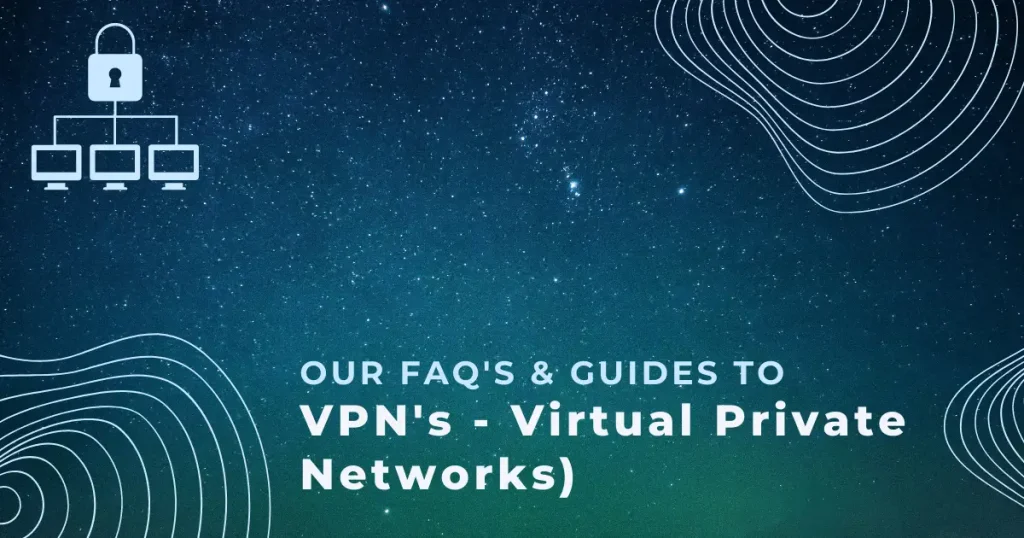Featured
Table of Contents
Explain How A Virtual Private Network (Vpn) Works

All your internet traffic is routed through this tunnel to the server, which then sends the traffic off to the public internet as usual. Data coming back to your device makes the exact same journey: from the web, to the VPN server, through the encrypted connection, and back to your machine.


There are a couple of choices out there to establish your own, such as Summary. Doing so is relatively straightforward, but you'll either need to preserve a server or rent one, which is less easy. While there are some efforts to make self-hosted VPNs more accessible, it's something best left to tinkerers who aspire to get their hands (digitally) filthy.
If you don't like that a business you're already paying is benefiting from your information or if you have concerns about ISPs hoarding comprehensive information about your activities, a VPN will assist. Not even your ISP can see your web traffic when you utilize a VPN.VPNs likewise make it harder for advertisers and others to track you online.
Private Internet Access: The #1 Best Vpn Service For 10+ Years
When the VPN is active, your real IP address is concealed, and anybody viewing you can just see the IP address of the VPN server. By concealing your genuine IP address, VPNs reject snoops one tool used to determine and track you online. Regardless of that, VPNs do not make you totally anonymous online.
Some VPN services include committed anti-virus tools too, and some anti-viruses companies now use VPNs. We do not usually check the malware-detecting capabilities of VPNs, since we view VPNs mostly as a privacy service. To attend to the threat of malware, our company believe standalone anti-malware softwarewhether it's one you buy or the one that ships with your computerdoes a much better task.
A VPN will hide the contents of your web traffic from some observers and can make it harder for you to be tracked online. A VPN can, at best, supply just limited protection against the threats you're most likely to come across on the web: malware, social engineering frauds, and phishing sites.
What Is A Vpn?
Pirating material may also be an offense of your VPN's terms, so be sure to examine carefully. With a VPN, it's possible to connect to a VPN server in another nation and browse the web as if you were physically where the VPN server is. This can, in some cases, get around regional material restrictions and other sort of censorship.
It must work, it's important to understand that a VPN does not make your traffic invisible. Some VPNs consist of modes that aim to disguise VPN traffic as more typical HTTPS traffic.
These addresses are dispersed geographically and can often be rather near your real place. By concealing your true IP address behind the IP address of a VPN server, your real location can be obscured. Keep in mind that websites and services sometimes have other means of determining your location. Likewise, lots of sites are delicate to changes in expected habits.
What's The Difference Between Vpn & Ip Vpn?
So, while you can use a VPN to stream video online, and we make certain the majority of you reading this are, it might work but it may also stop working tomorrow. The biggest issue with VPNs isn't a problem of innovation, but among trust. Since all your traffic is travelling through its systems, a VPN company is in the exact same position as an ISP.
We want to see VPNs taking every possible measure to safeguard their customers, but we also require to see openness. Even when we do not agree with all their choices, we prefer business that are upfront about their operations. A VPN needs to also issue a transparency report detailing what demands the business has actually gotten from police and how the business reacted.

We need to acknowledge that audits are imperfect tools. Audits are commissioned by the VPN business and the business also describes the scope of the audit. Still, it's a valuable method to demonstrate a company's commitment to openness. A few years ago, VPNs had a better-defined location in your privacy and security toolbox.
Vpn Encryption: How Does Vpn Encryption Work, And Why ...
Even a VPN's admired ability to spoof areas, bypass censorship, and unclog streaming is less specific as business and governments have become significantly aggressive in identifying and obstructing VPN traffic. The rise of sophisticated tracking approaches and HTTPS are typically cited as reasons that VPNs aren't worth the money. It depends on why you a VPN.
If you want to make it a little more difficult for marketers and others to track you as you move throughout the web, a VPN can assist do that, too. And if you desire to guarantee your ISP called little about your online activity as possible, a VPN can help there, too.
Do you fret about online security while using public Wi-Fi? Or has someone informed you that you might get hacked when using an insecure connection and someone will take all your information? Well, you may have likewise heard that you need to use a VPN to secure your online personal privacy. But do you have any concept what it is and how it works? Don't worry in this short article, we will go through everything that you need to know to about what and when to use a VPN and when to prevent utilizing it.
What Is A Vpn & What Does It Do?
VPN stands for Virtual Private Network. A VPN acts as a tunnel through which all your data goes from your place to your location.
It forwards your request to your VPN server. Then the VPN sends out the request to your desired IP address or website. Now let's go over some of the advantages in more information. There may be circumstances where you won't have the ability to gain access to certain websites which are blocked by your workplace or school or college department, but you still desire or need to access them.
In these cases, a VPN will help you bypass all the blocking filters and let you access the websites that you want to access without anybody's help and others will have no idea what you're accessing. Individuals in specific countries can not access any websites outside their country like You, Tube or Google due to the fact that their government does not desire them to utilize any other sites.
What Is A Vpn, And Why Would I Need One?
There are a number of sites, unique deals, and services which are available for particular nations or areas. A VPN can help you by changing your IP address which will alter your place on the internet.
Your ISP is tracking your every carry on the web which websites you are going to, the quantity of time you are spending there, and when you log in and log out from a site. Sometimes you might need to hide your browsing history/activity from your local network/ISP. In that case, using a VPN can help you keep all your records secured, and your ISP will have no concept what you are doing with your internet.
Whatever on the internet is tracking you. Site and web servers that you utilize or visit understand your IP and location. That can be utilized to their benefit and each time you go to the very same site, they will understand that it's you, and they will track your usage and your habits.
Latest Posts
The Best Vpns For Small And Home-based Businesses
The Best Vpns To Protect Yourself Online
The Best Vpn App For Mobile Devices In 2023